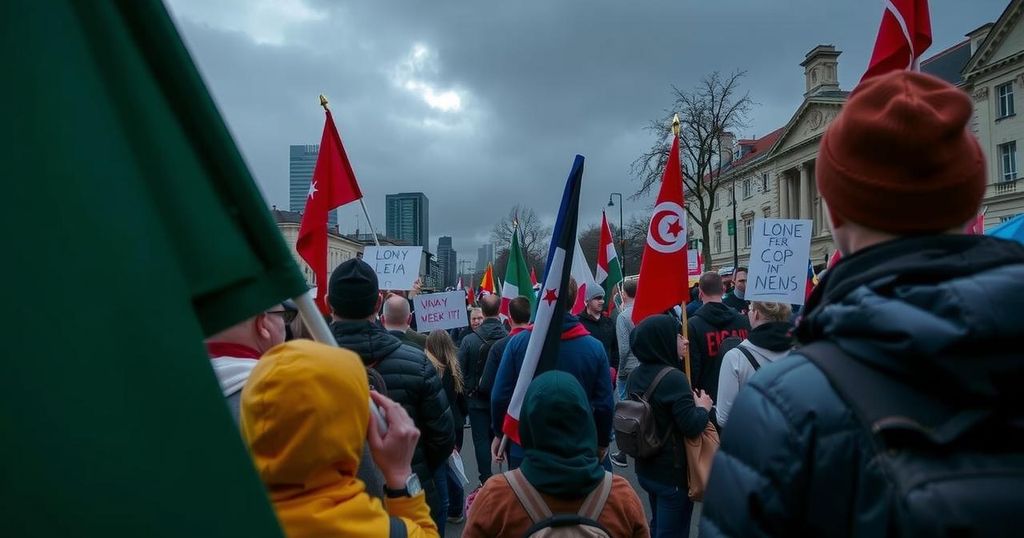Climate-Impaired Nations Protest at COP29 Over Finance Deal Controversy

At COP29 in Baku, climate-imperilled nations protested a deadlock over climate finance, leading several representatives to walk out during discussions. Key concerns include the inadequacy of proposed funding increments, with many demanding a minimum of $500 billion annually to effectively combat climate challenges. Diplomatic tensions are high between affluent and developing nations, reflecting ongoing disputes about climate responsibility and equity.
At the UN COP29 conference held in Baku, escalating frustrations over climate finance led representatives from small island nations and impoverished African states to stage a walkout. They expressed their dissatisfaction with the proceedings, with Cedric Schuster of the Alliance of Small Island States declaring, “We came here to this COP for a fair deal. We feel that we haven’t been heard.” Proposed funding commitments from wealthy nations remain inadequate, with an unpublished draft calling for a significant increase to $300 billion by 2035, yet many delegates feel that this falls short of their needs.
AOSIS indicated they have withdrawn from the climate finance discussions, pushing for a more inclusive negotiation process. Sierra Leone’s climate minister, Jiwoh Abdulai, condemned the negotiations as “effectively a suicide pact for the rest of the world.” The revisions from affluent nations were criticized as insufficient by the developing countries, who demand far greater financial support to combat the impacts of climate change.
As the discussions unfolded over the weekend, diplomats hustled to establish a consensus, but many voiced that the tumultuous environment indicated strong divisions among the nations. Some participants emphasized that any subpar agreement would not be acceptable, reiterating that “no deal is better than a bad deal,” as stated by Ali Mohamed, the Kenyan chair of the African Group of Negotiators.
Additionally, the EU seeks reforms on fossil fuel dependencies, facing opposition from countries aiming to mitigate pledges made during previous conferences. German Foreign Minister Annalena Baerbock emphasized that vulnerable nations should not be “ripped off” by wealthier nations reluctant to meet their obligations. Moreover, a coalition of over 300 activist organizations criticized wealthy historical polluters for failing to fulfill their responsibilities during these climate negotiations.
Despite proposals outlining a larger target of $1.3 trillion annually to support nations affected by climate crises, creating sustainable funding models remains a complex challenge. As the negotiations continue, the disparity between developed and developing nations regarding climate responsibilities highlights urgent global inequalities that remain unresolved at this pivotal meeting.
The climate negotiations at COP29 in Baku have become a focal point for discussions around financial commitments to assist developing nations in combating climate change. With the significant impact of rising sea levels and climate-induced disasters threatening the most vulnerable countries, the ongoing talks aim to secure a robust financial framework that ensures equitable support for those affected. The dissatisfaction among smaller and poorer nations stems from what they perceive as inadequate funding offers from wealthier countries, reflecting broader geopolitical tensions and differing priorities in climate action efforts.
In summary, the contentious dynamics observed at COP29 reflect broader global challenges concerning climate finance and equity. Disappointed with the proposed funding and a lack of progress in negotiations, representatives from climate-threatened nations have made it evident that they are seeking a more inclusive and substantial deal. With persistent calls for enhanced financial assistance, the future of climate discussions remains uncertain, raising critical questions about the commitment of developed nations to support their developing counterparts in addressing climate change.
Original Source: www.fox28spokane.com






